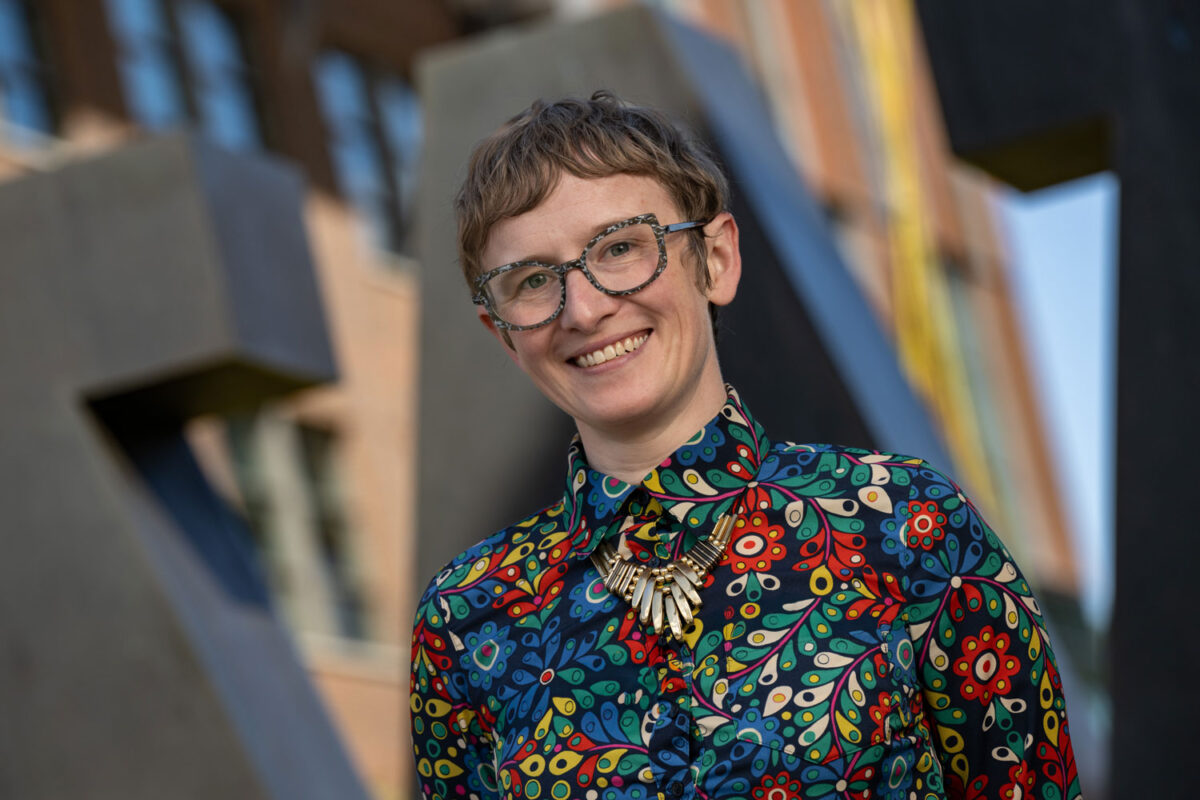
By Douglas Esser
Claire Jennings worked in software development, but her tech skills were self-taught. To fill the holes in her training and pick up career credentials, Jennings took the graduate certificate program in software design and development at the University of Washington Bothell.
Receiving the certificate in 2017, on top of her UW Bothell bachelor’s degree (business administration ’16), Jennings qualified to enter the Master of Science in cyber security engineering program. She plans to graduate with the MSCSE degree next year or in 2020.
To increases access to the certificate program, UW Bothell will also offer it online, starting fall quarter 2018. Faculty will use recorded video, online discussion boards, interactive quizzes and web conferencing.
The University’s goal is to help move more interested people into the cybersecurity workforce. There are about as many openings for cybersecurity jobs as there are current professionals, said Michael Stiber, professor of computing and software systems and associate dean of the School of Science, Technology, Engineering & Mathematics (STEM). In other words, there’s room for the cybersecurity workforce to double.
The UW Bothell graduate certificate in software design and development is intended for working professionals with a bachelor’s degree in a non-computing field. The one-year, 18-credit course helps them switch to careers in software development or systems analysis. Or, certificate holders may pursue a Master of Science in computer science and software engineering (MCSSE) or a Master of Science in cyber security engineering, like Jennings.
“It really does open up multiple paths,” Jennings said.
Jennings wants to advance her career in the field of cybersecurity because it “has the advantage of trying to make the world a better place.” She started that work as one of a dozen UW Bothell cybersecurity interns at T-Mobile. Her present work involves developing computer games to teach cybersecurity awareness. Jennings hopes the internship will turn into a full-time position for the Bellevue-based wireless carrier.
UW Bothell will be able to offer the certificate online nationally and to the active-duty military thanks to a $300,000 grant from the National Security Agency, Stiber said.
“It’s a way for our computing and software systems division, the School of STEM and UW Bothell to have a major impact in cybersecurity education and on the cybersecurity workforce,” Stiber said.
In addition to helping fill a need for cybersecurity professionals, expanding the certificate program online will bring in people who didn’t start in computer science, Stiber said.
“The idea is to use the graduate certificate to increase the pipeline in cybersecurity and to increase the diversity of students in the professional population of cybersecurity,” Stiber said. “I think there’s a lot of opportunity for this.”
Another graduate student at UW Bothell, Allison Gibson got her certificate in 2015, giving her the framework she needed to start the MSCSE program. She had a computer engineering degree and work experience but had taken a long break for family reasons.
“The certificate was a great way for me to recapture time lost,” Gibson said. “The UW Bothell program is an excellent, jam-packed, fun-filled year to ensure you have the grounding that you need to be ready for whatever may come at you quickly in a computer science career.”
Gibson expects to have an important role in the tech industry that moves so fast it sometimes outpaces its ability to secure data or communications.
“Privacy and security are already deemed necessary for health and infrastructure applications, and more areas will adapt, or else the industry may lose the confidence and faith of customers,” Gibson said. “To ensure the potential of the internet, we all need to be more educated in privacy and security.”



